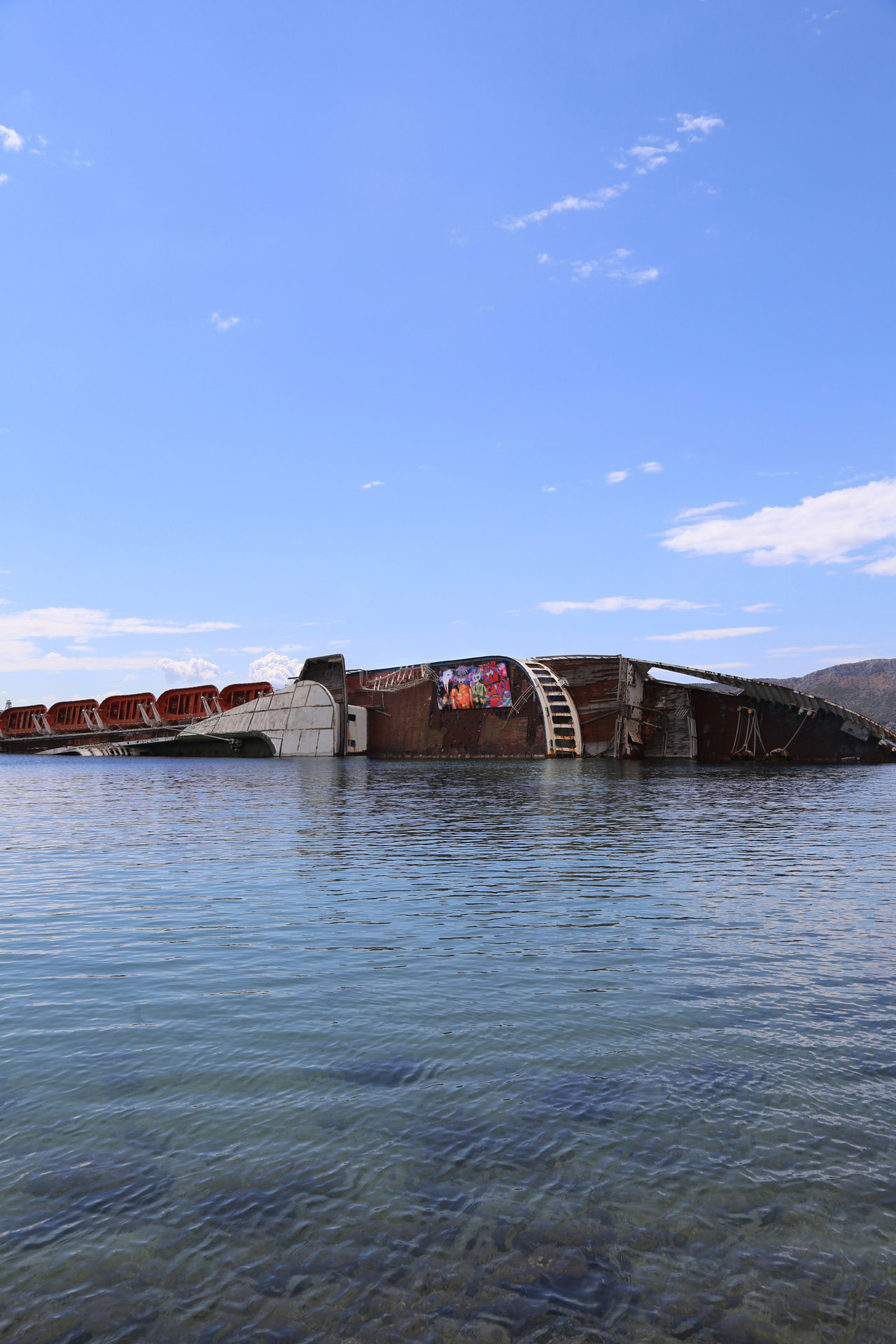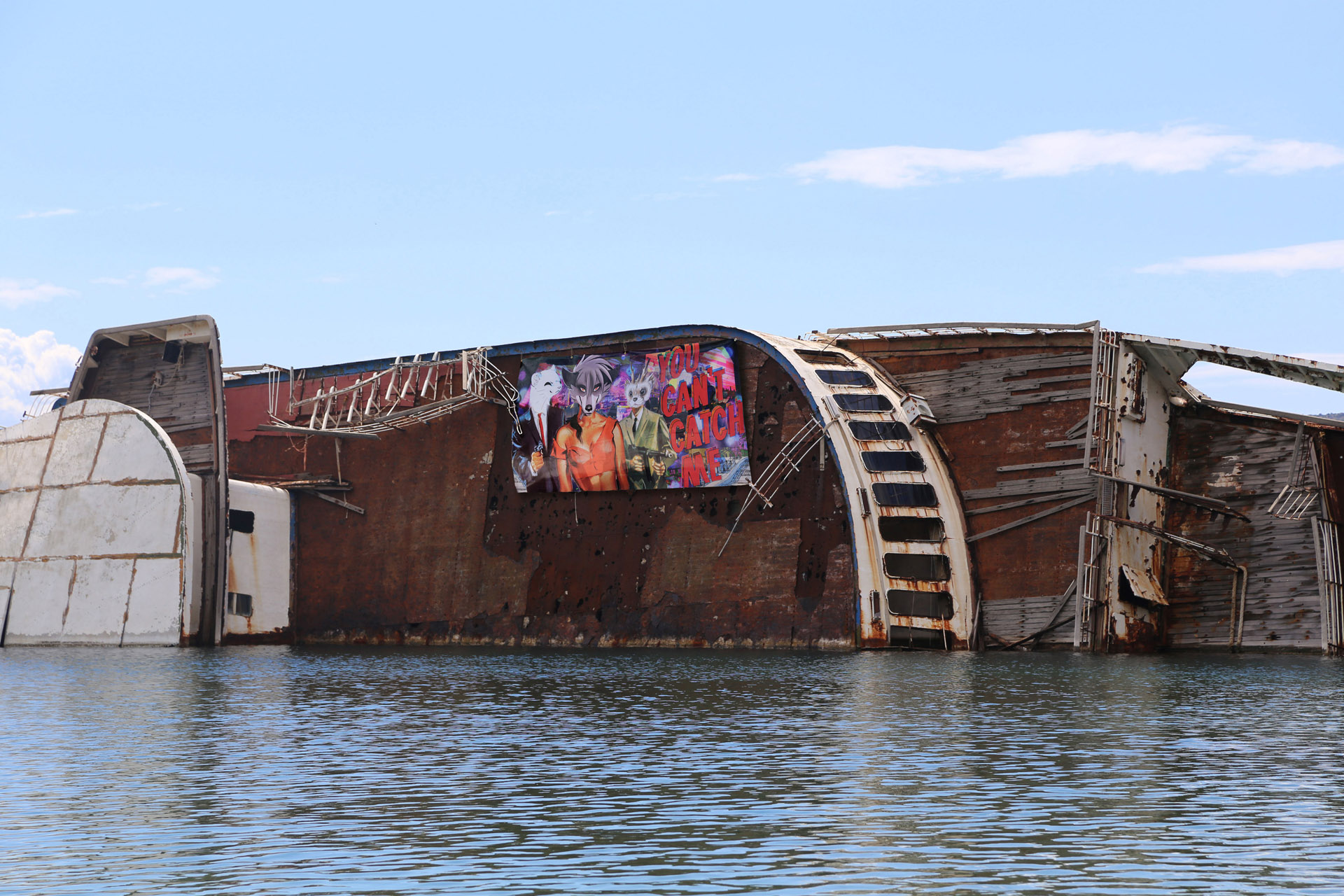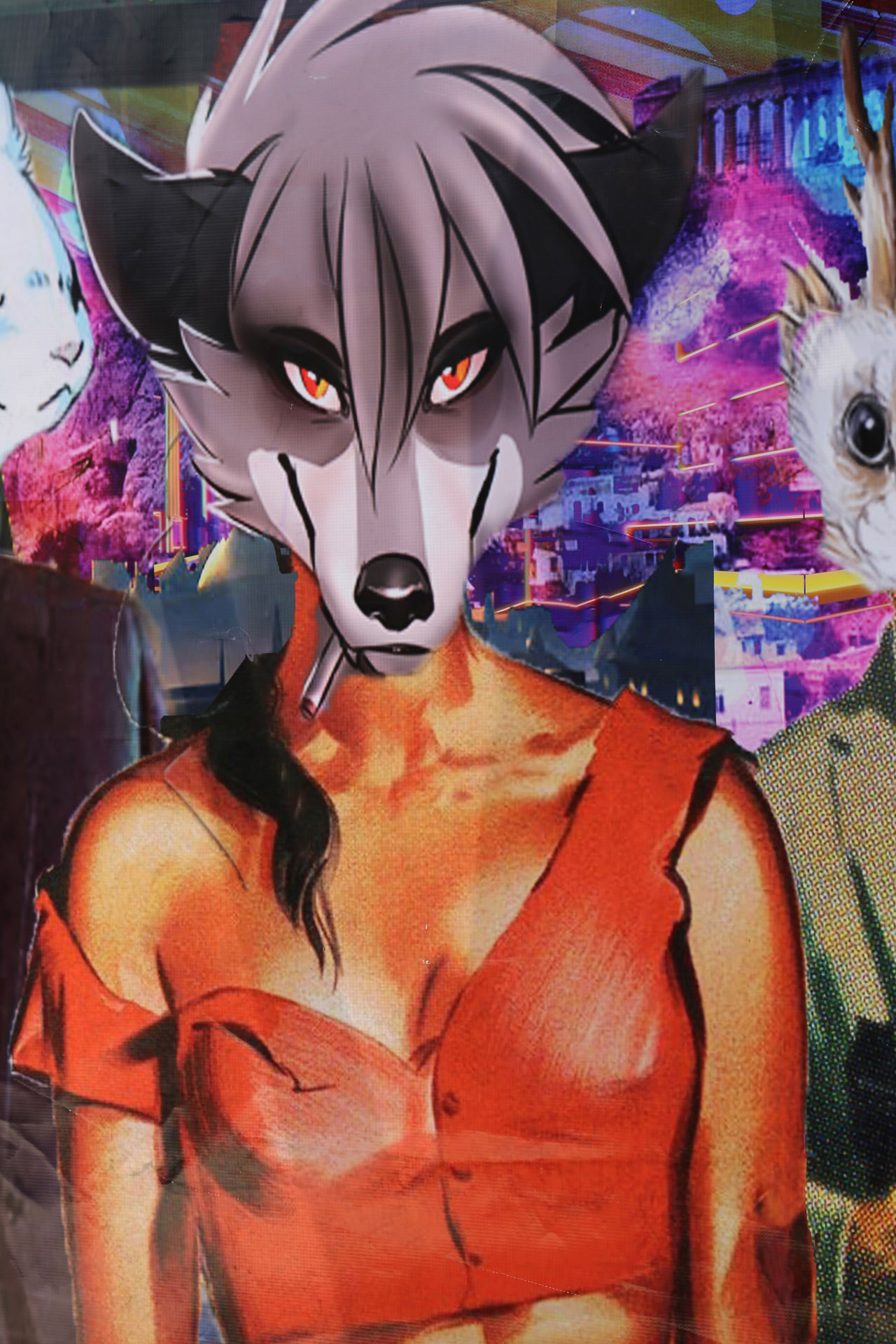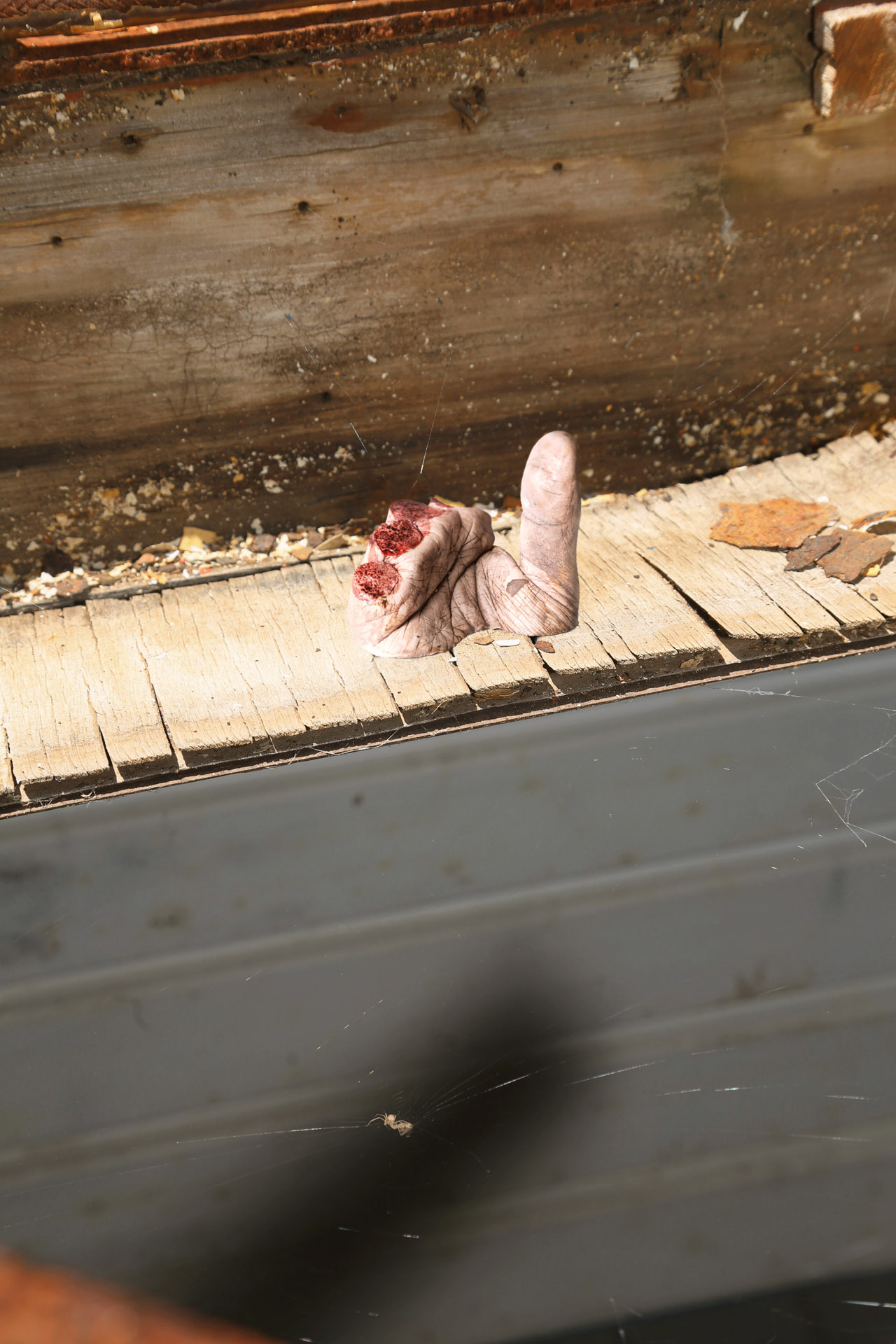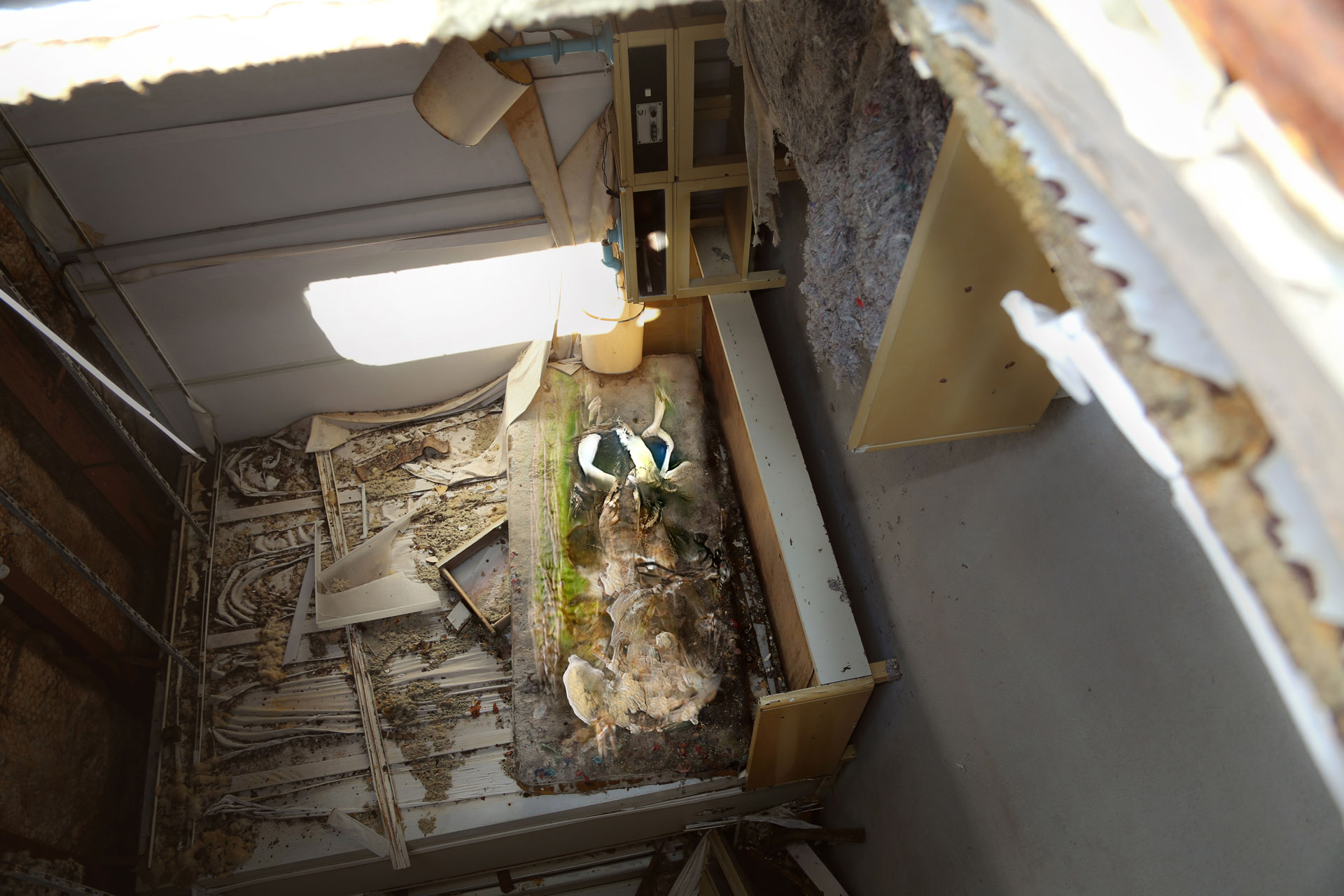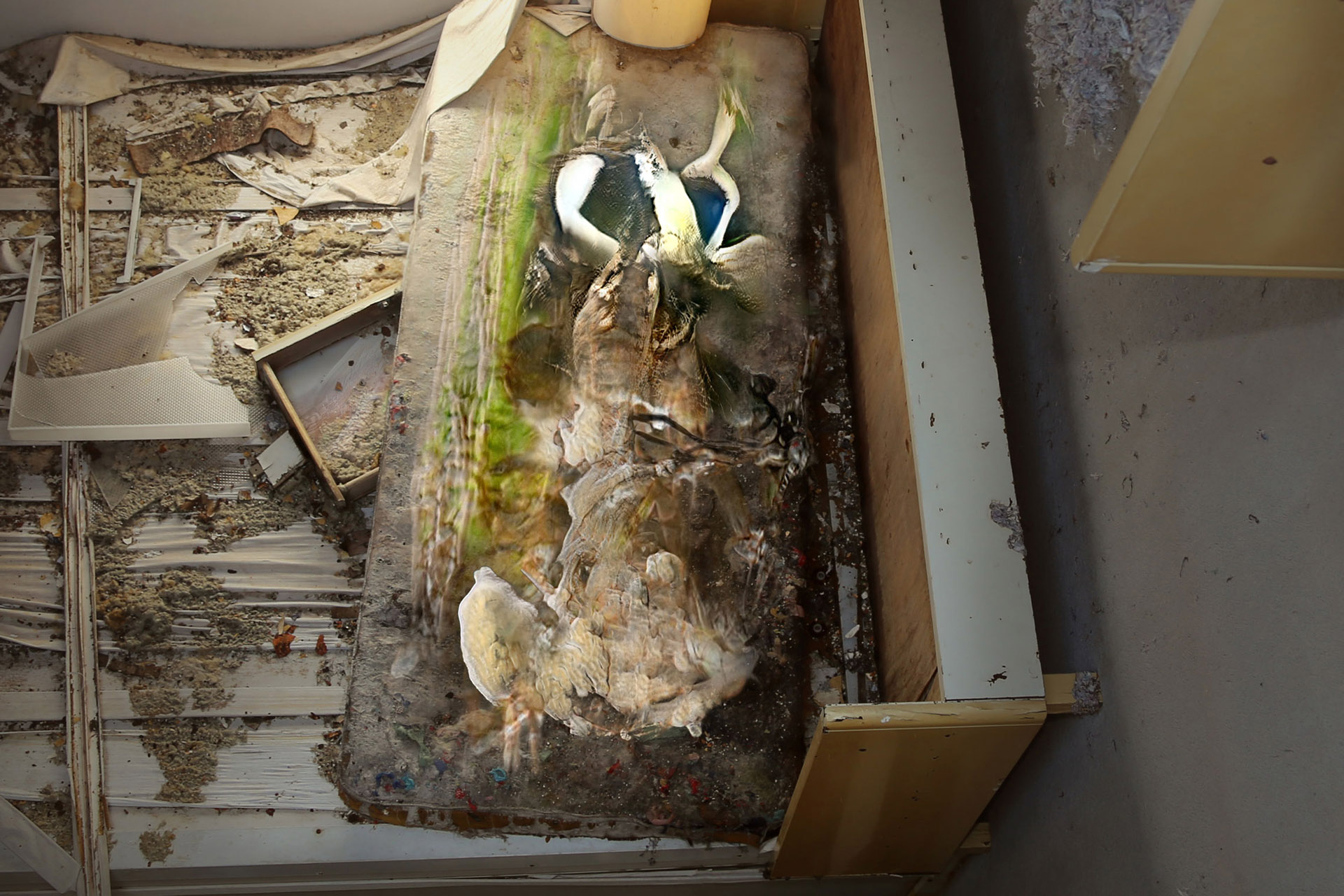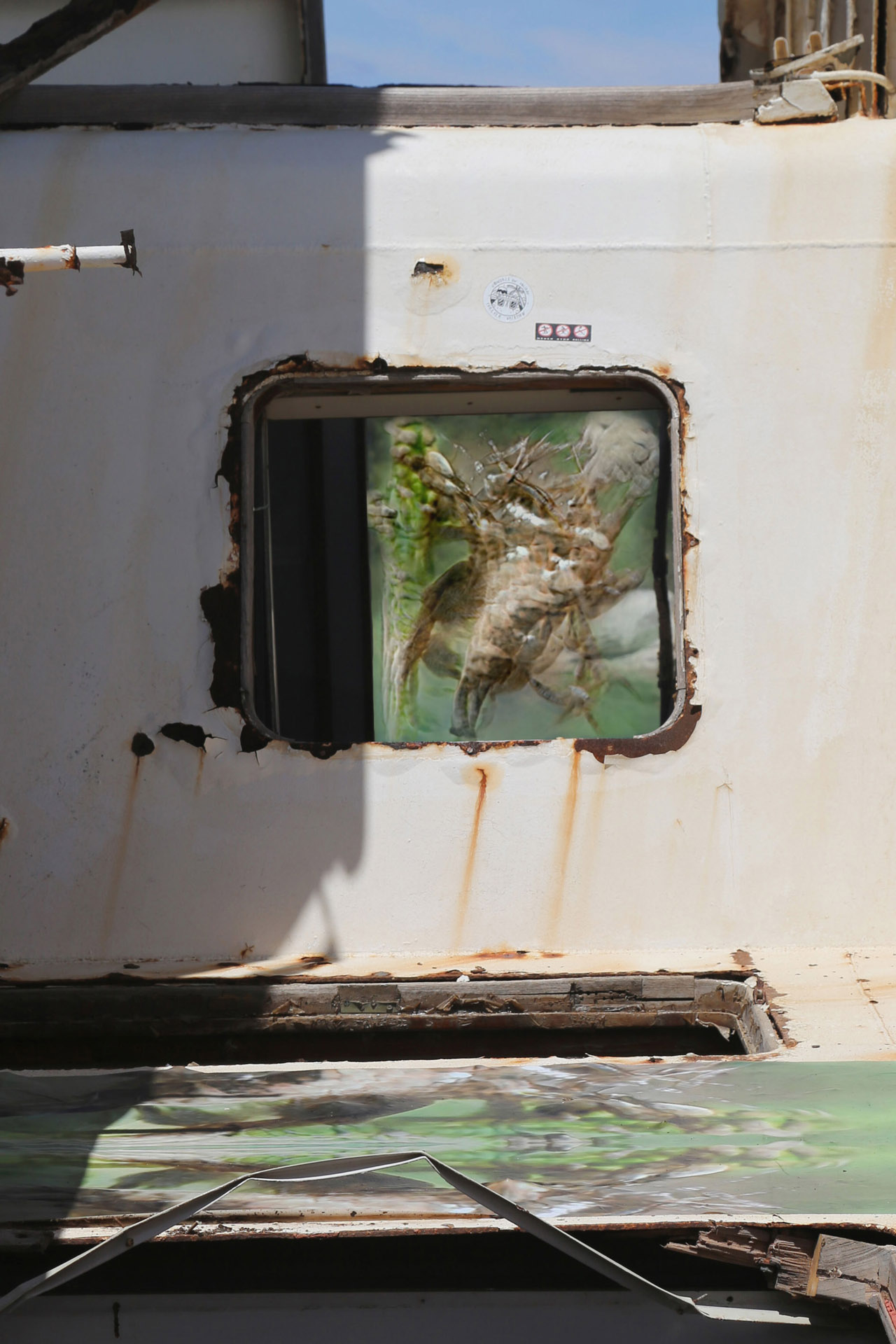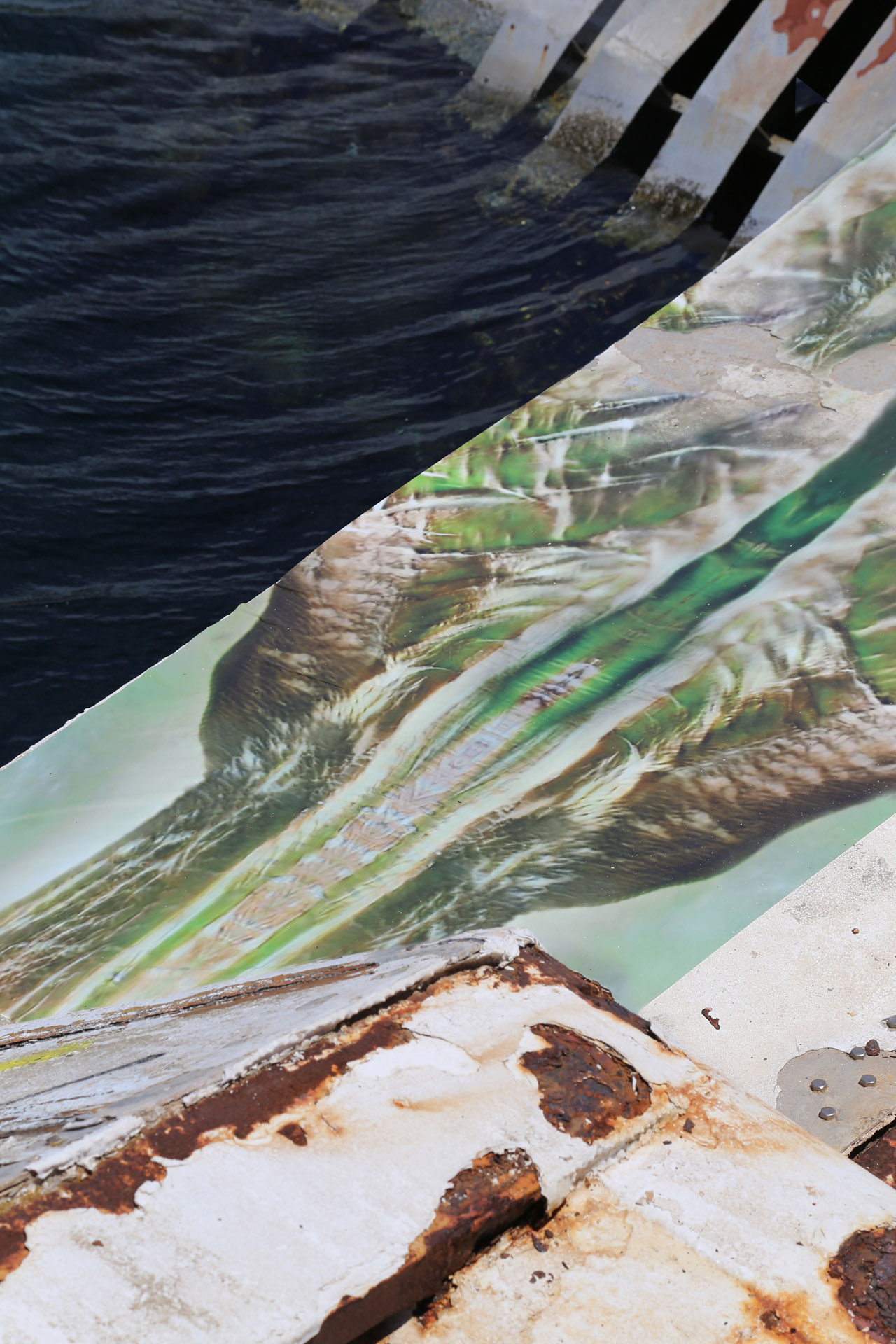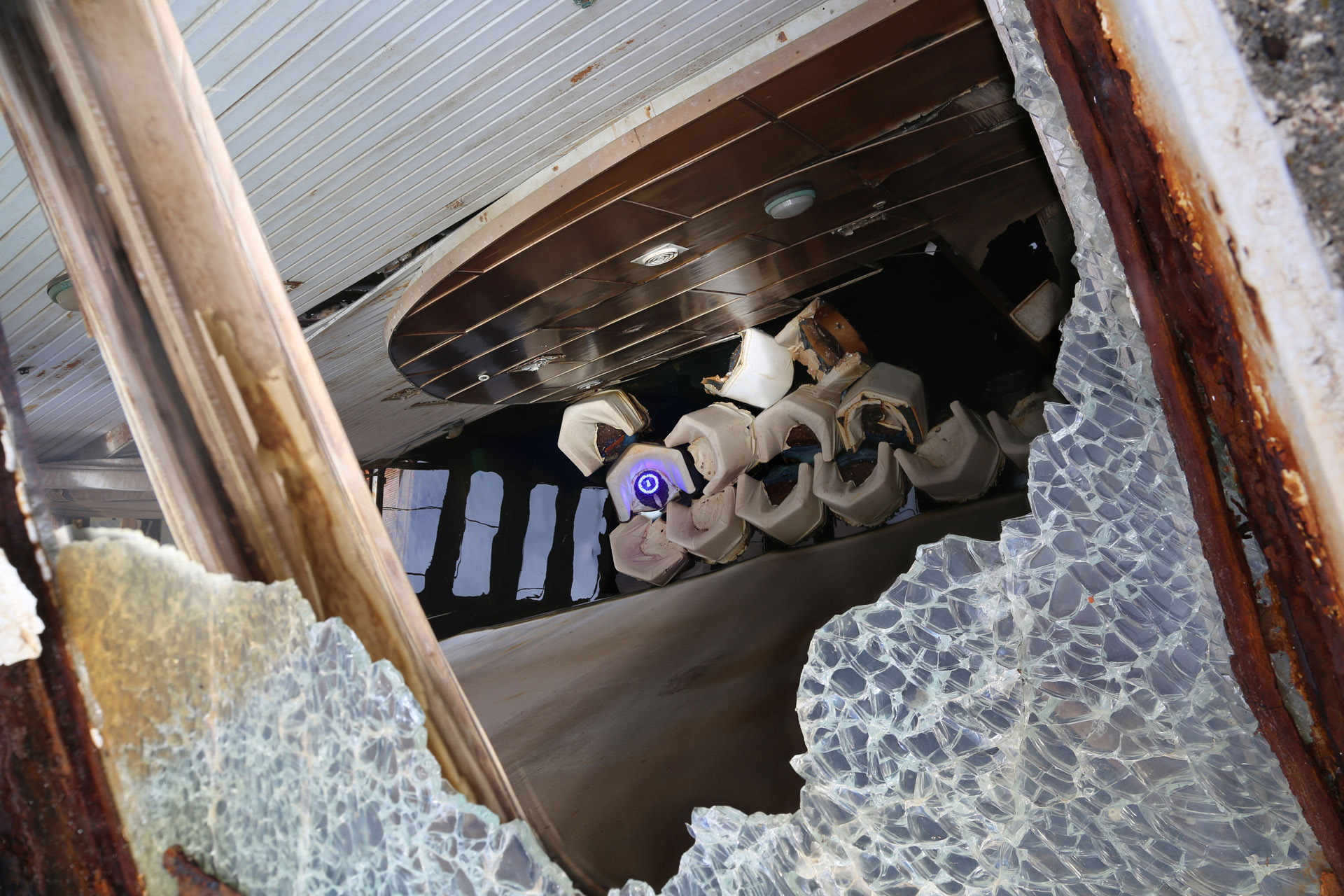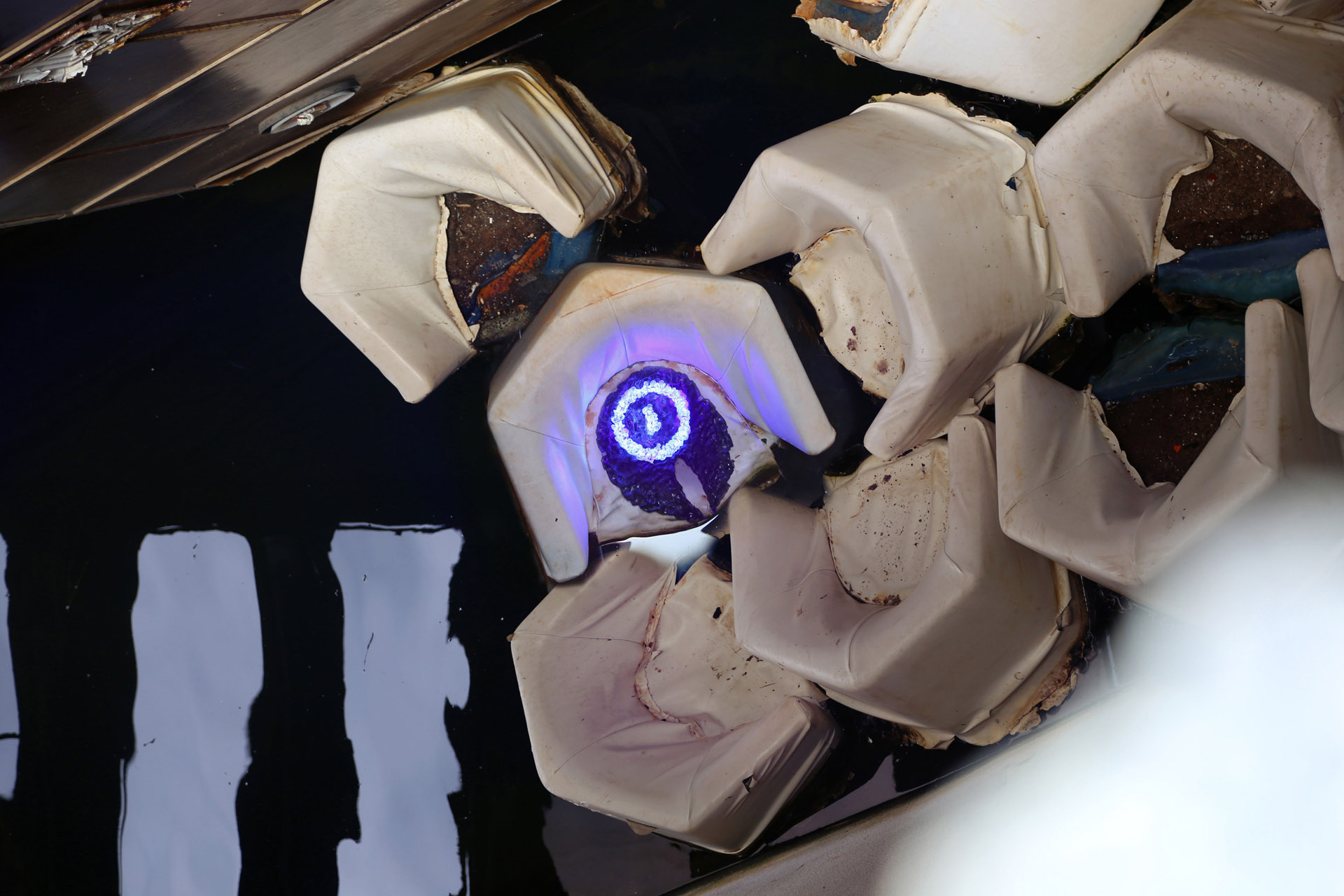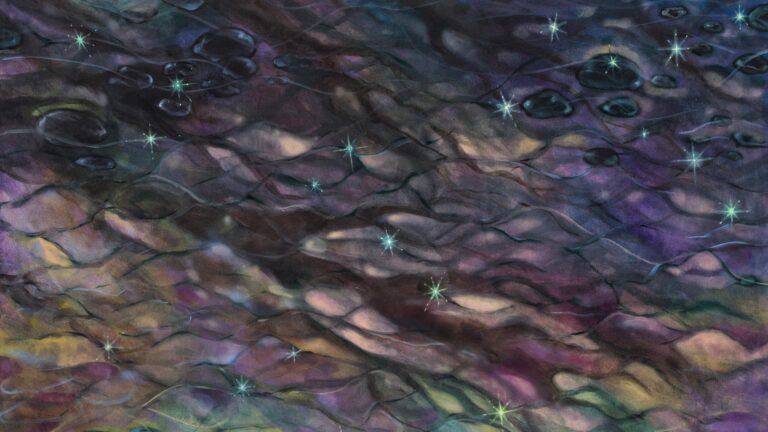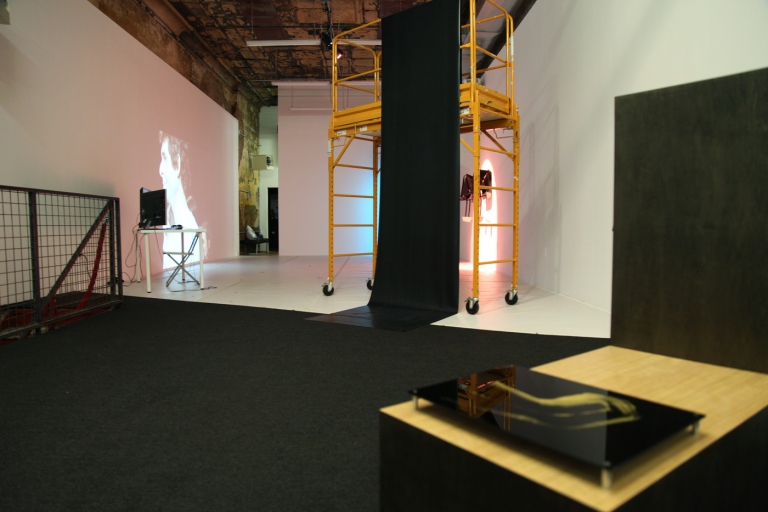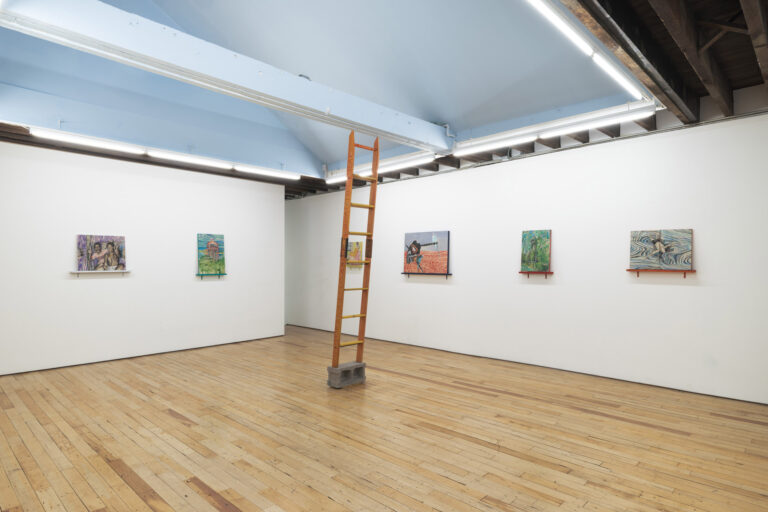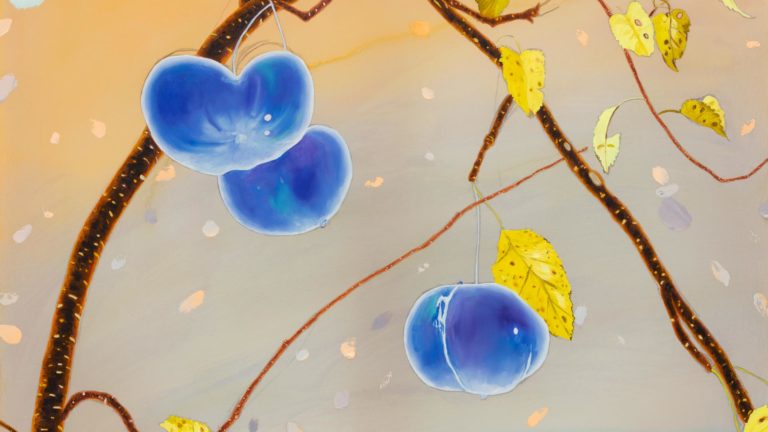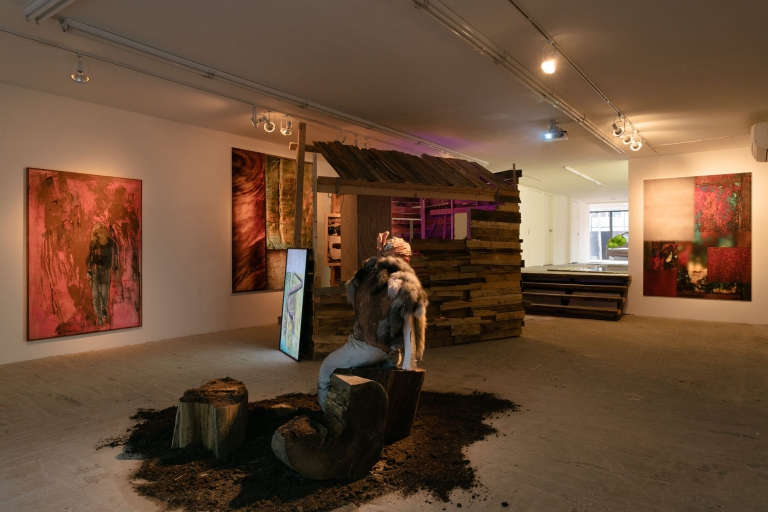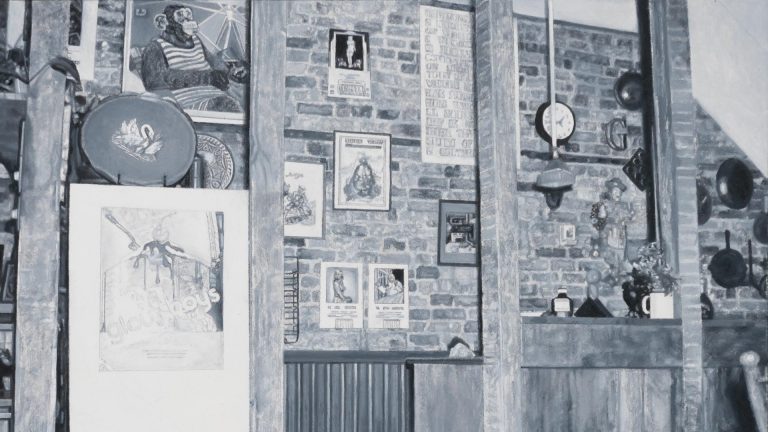Artists: Alexandra Koumantaki, Genevieve Goffman, Jakub Hájek and František Hanousek, Marios Stamatis, Matyáš Maláč, Marian Luft, Ondřej Doskočil, Klára Švandová
Exhibition title: Clueless Agency: The boat is leaking, no one cares (Bottomless Chasm Awaits)
Curated by: PGS Collective
Venue: MS City of York, New York, US, Mediterranean Sky, Athens
Date: 2022
Photography: all images copyright and courtesy of the artists
The black lake
We believe that reality is horizon and light, aperture and flash, whereas it resembles more the posture of an opaque non-relation (to) light. When exploring the universal dimension of the cosmic, we remain prisoners of cosmo-logical difference. Our philosophers are children who are afraid of the Dark.
– François Laruelle, On the Dark Universe
Beneath, there is another world, utterly removed from any imaginable world, as distant as possible from any exotic land. A land where no dragons hide.
– François Bonnet, The Infra-World
At the End of a hellish rain-lashed track a large dark building looms into view: a ramshackle, turreted, neo-Gothic mansion, whose hideous gargoyles are starkly delineated by intermittent flashes of sheet-lightning. A sign above the half-open door reads: Black Lake Technical Institute. All the lights are out. You switch to night vision and cross the threshold.
– CCRU, Skin-crawlers
Isabelle Stengers explains that we have “an obscure fear of being accused of regression as soon as we give any sign of betraying hard truth by indulging soft, illusory beliefs.” But according to both her and François Laruelle, it is the very concept of truth as a product of knowledge which urgently needs reformulation. Laruelle points out that the history of western philosophy is a history of binarity, “philosophers are forever transiting between shadow and illumination” (and we might add subject and object, spirit and matter…), trying to “shed light on” the dark areas of the unknown. But this self-centred “illuminating potential”, always promising an answer developed on the base of rational judgement, is inherently “arrogant”, because it presupposes that philosophy can position itself as the chosen light-bringer in the first place. To grant yourself such a position would necessarily denote the ability to stand on a more or less stable viewpoint over and above the slimy quicksand of the real, from which we could see, frame, observe, and qualify. But such an observatory doesn’t exist. Moreover, the very idea of “bringing to light” comes with an unquestioned assertion “that blackness is a case that can and must be solved.”
Who then has the right to claim for themselves this illuminating power? Who stands outside of black lake’s opaque waters – intact, dry, and objective? We are always too sure in our attempts to gain mastery over an object of knowledge and to preach that knowledge further. But especially in the fast-shifting world of what we perceive as present, entangled and stretched across endless networks of physical-digital bodies and objects, it is perhaps obvious now more than ever that there is no isolated island from which to watch the sinking boat. Rob Coley writes that in the 21st century we face “the need to grasp climatic scale and temporality, which nonetheless elude cognition, and the need to contest the computational infrastructure of capitalism, which nonetheless passes into opacity in accordance with its integration into everyday life.” We thus are and always have been embroidered in geological and algorithmic forces beyond our rational, cognitive and physical recognition. (Haven’t Erewhon’s machines been using our senses to see and hear for all that time?). The highly problematic supposition of an achievable distance from which we could reflect on the world crumbles under the onslaught of the unknown, which doesn’t crawl only from the Outside but resides in the very core of thought – “the real is opaque, an immanent blackness that humanist philosophy has forgotten or foreclosed in its decision to bring to light a World”.
In his text On the Black Universe, Laruelle describes the World as this illuminated space, our own construction which we so often mistake for the Universe, ignoring “the thinking force before all thought”, which exists within us as material beings without the need for philosophy or ontology as such: “The Universe was “in” the World and the World did not see it.“ Laruelle invokes the equalizing power of the dark, the unity of the black universe, untouched by our attempts to divide it with one-directional and limited rays of light. Black Universe is not opposed to any light, it is blackness without negation, “an opaque and solitary thought, which has already leapt through man’s shut eyes as the space of a dream without dreaming.” Similarly as Laruelle’s whole project of non-philosophy, the black universe is not something to reach out to, to discover or to penetrate, but rather to be flattened to/with, to get lost in, to give up claims for. “Black is entirely interior to itself and to man,” it is the very material we are made of, which surrounds us, which we think through and which thinks through us. (As Eugene Thacker says: “thinking the hair, mud, and dirt that thinks through me”). But to connect we must turn off the lights, forget what we knew and shut our eyes. Because the orientation in this impenetrable, fluid darkness of the black requires a specific regime of vision, a tool-kit for dabbling in the dark.” This “vision-in-black” is not an enhanced vision achievable through additional knowledge or any sort of extension, nor can the darkness be chased away with a stronger flashlight. On the contrary, we can start “seeing” in the night exactly when we “abandon perception” and embrace a certain “visionary vision that looks without looking.” But how do we tap into what knowledge can’t chew on and which we can’t see, touch or hear? Simon O’Sullivan writes that Laruelle’s non-philosophy implies “a form of gnosis or even ‘spiritual’ knowledge”. The spiritual is that which “haunt[s] the margins of philosophy, […] mysticism and even religion and politics,” letting into the “quiet discipline” of philosophy something which makes it “related to gnosticism and science-fiction”– a secret.
A secret, a mystery, a fantasy is that which “has never been the predicate to knowledge” nor words, and what we need to invoke if we seek to “bring[…] the emotion of the Universe […i]nto the World of narrow-minded thoughts.” It is not knowledge, which can never reach the secret no matter how it grows, but non-knowledge we must seek. And on such a search, there is no way to know and no place to reach. Because “only the secret sees into secret, like Black in Black.” And as Laruelle notes elsewhere, it is not at all about introducing the notion of secret into our thinking, shaping it as a concept, but to “introduce philosophy to the secret and to the hermetic experience of truth.” On our search without a goal we thus need to respect the unknown as unknown and “dive[…] right in[to]” the blackness. And swimming with eyes wide shut, to search for the secret we can’t ever find.
-Noemi Purkrábková



